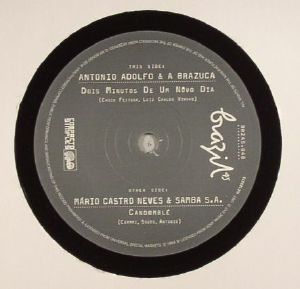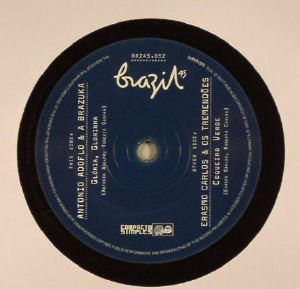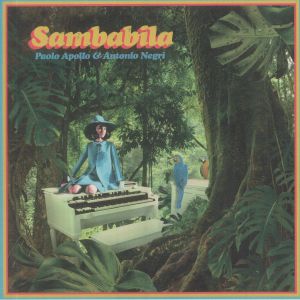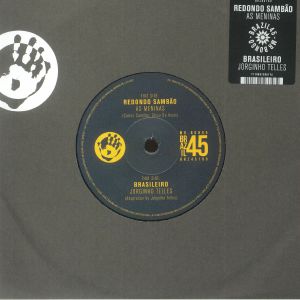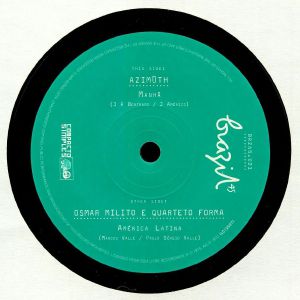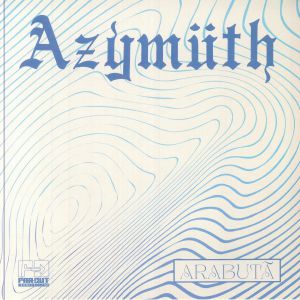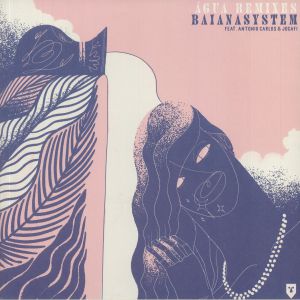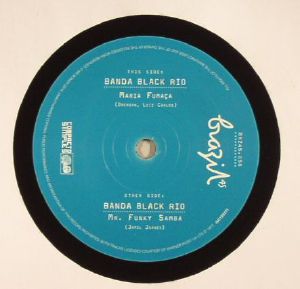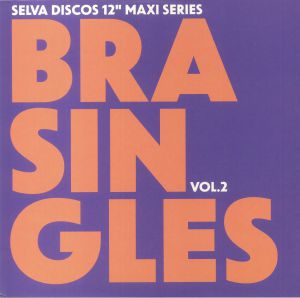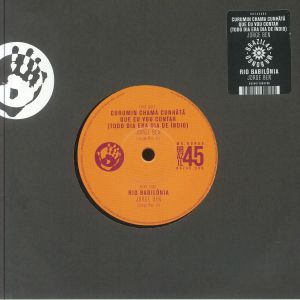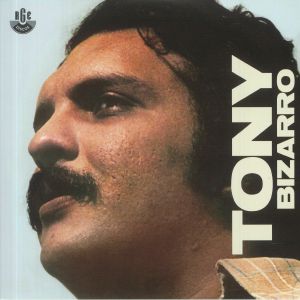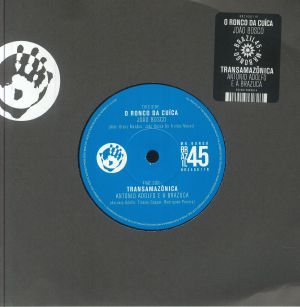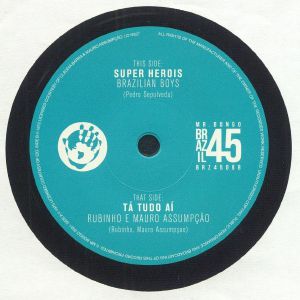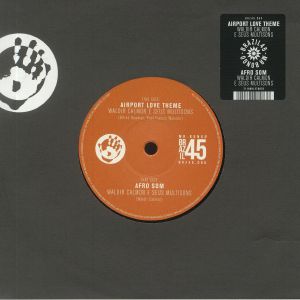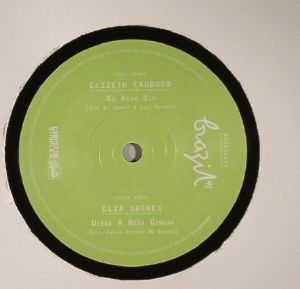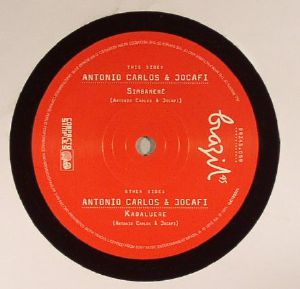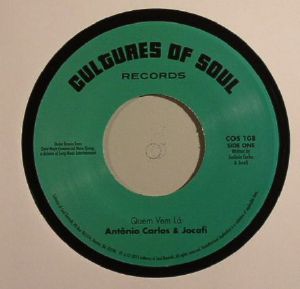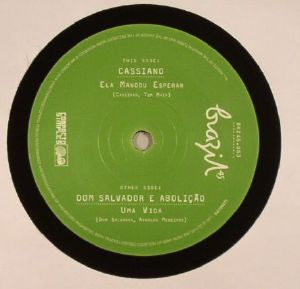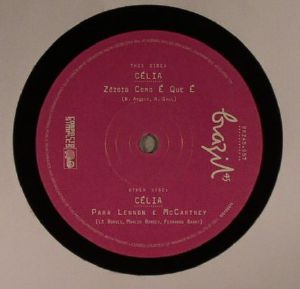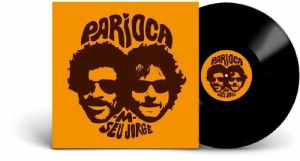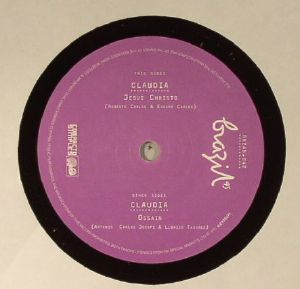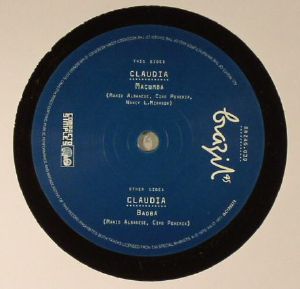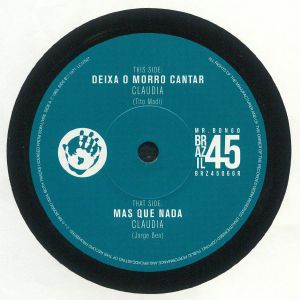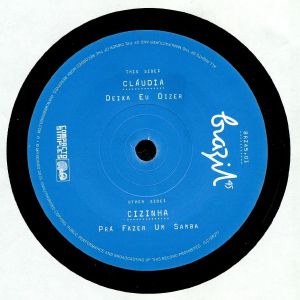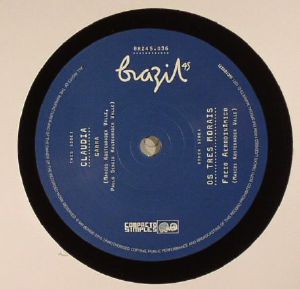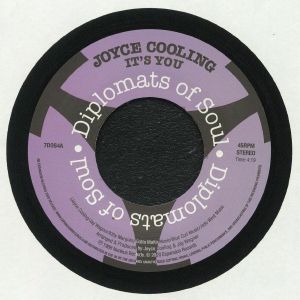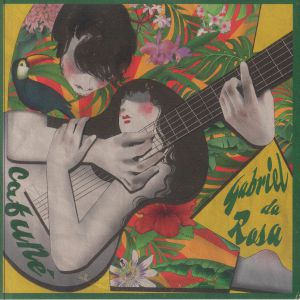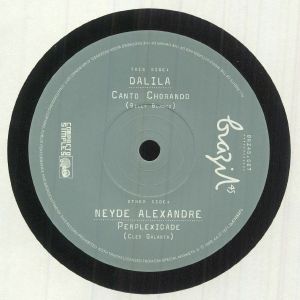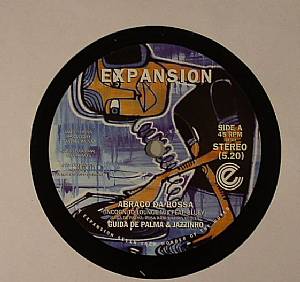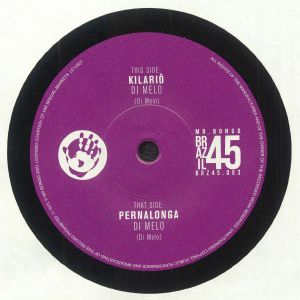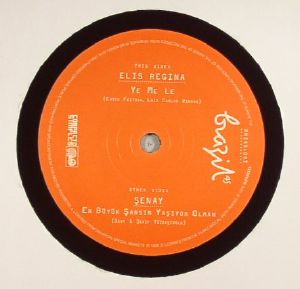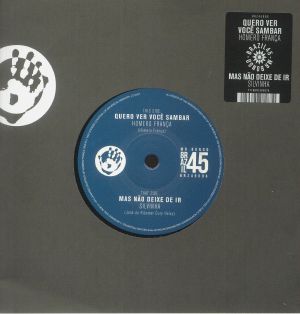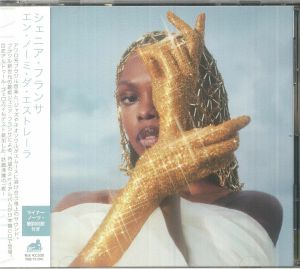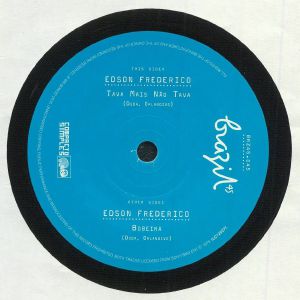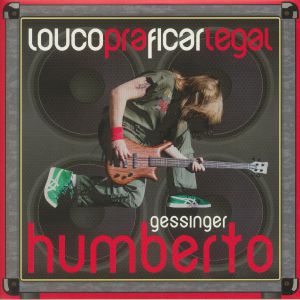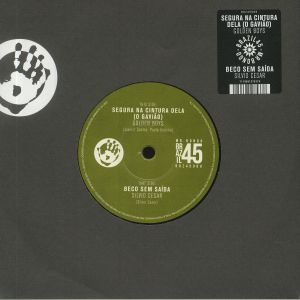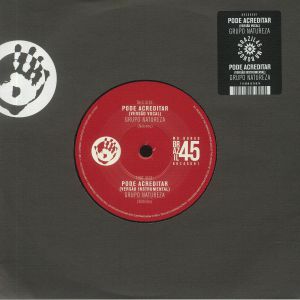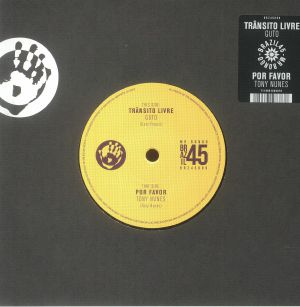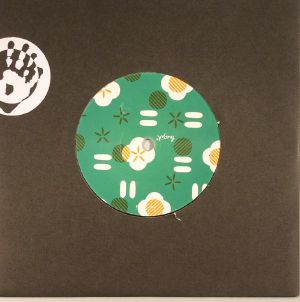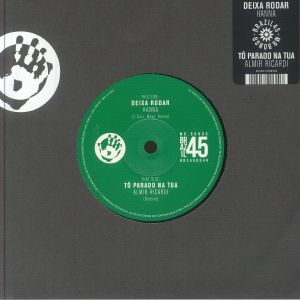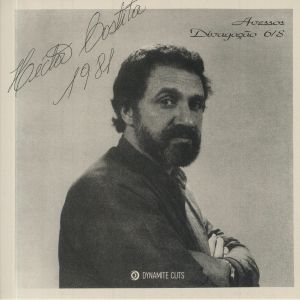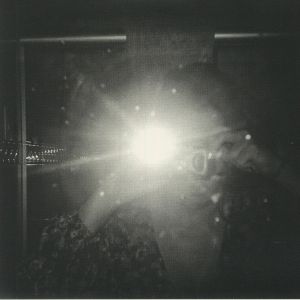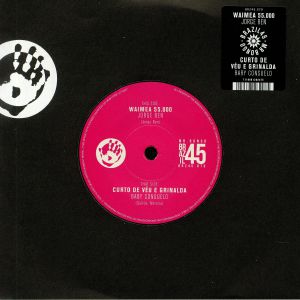Filter
Genre
Stock
Release Title
Price
Tags
189
Brazilian
156
MPB
67
Brazilian Jazz
67
Samba
66
Brazilian Funk
48
Bossa Nova
18
Brazilian Disco
16
Jazz Funk
15
Latin
11
Psychedelic Rock
9
Psychedelic Soul
8
Psychedelic Jazz
6
Latin Jazz
5
Latin House
5
Psychedelic Funk
4
Disco Funk
4
Latin Funk
3
African
3
Afro Cuban
3
Cumbia
2
Afrobeat
2
Experimental Jazz
2
French
2
Jazz Funk Disco
2
Jazzy House
1
Afro House
1
Afro Latin
1
Balearic House
1
Boogaloo
1
Disco House
Back catalogue: All genres
Juno's full catalogue of All genres
Singles
Intérprete: Afro Beat Foundation, I Love 45's!
in stock $12.69
Intérprete: Hubbz, Juno Recommends International
in stock $12.69
in stock $13.51
Review: You always know what you are going to get from Mr Bongo's Brazil 45 series and that is pure fire in musical form. This 100th release suggests the label has no intention of slowing down nor is it running low on top source material. This one from As Meninas on the A-side has beautiful female vocal-group arrangements with flutes that soar up top and plenty of ass-shaking samba shuffles down low. It's a tune that oozes soul and charm and was first released back in 1967. It's a super sweet but short song that is backed with 'Brasileiro' on the flip. It's taken from Jorginho Telles' self-titled 1971 album on Copacabana Records and mixes up raw guitar sounds with r&b vibes into something unusual and alluring.
… Read moreIntérprete: Voodoocuts, Juno Recommends International
in stock $12.69
Review: A tale of two sides, Azimuth's classic "Manha" should be recognisable to many; taken from their self-titled LP in 1975, its golden harmonies and lavish, lolloping Bob James style jazz are as timeless as they were 40 years ago. Flip for "America Latina". Conjured by prolific collaborator Osmar Milito (whose discography features the likes of Sammy Davis Jr, Spanky Wilson and Liza Minelli), its striking, sing-along charms are no accident... It was actually created for 70s Brazilian soap opera Selva De Pedra.
… Read more in stock $12.69
Review: Legendary Brazilian jazz-funk trio Azymuth drop their latest record 'Arabuta', pointing themselves in a new cardinal direction in sound. The limited 7" brings two new mix version of their recently released 'Arabuta' to the fold, both by fellow producer and Azymuth collaborator Daniel Maunick. Part-dancefloor, part-dub, both versions bring preservative tones, fully circling the resinous Brazilwood tree after which the track is named. The Tupi Guarani word for the endangered tree fuses with deft unperturbed jazz licks, despite the sense of urgency in saving the species, underscoring Azymuth's fusion of timeless Brazilian jazz-funk and cosmic futurism. In more ways than one, this record serves as a symbol of both the value and fragility of Brazil's natural beauty.
… Read more in stock $19.72
Review: This glorious package of remixes of the BaianaSystem band draws together contemporary Brazilian sounds with plenty of modern dance floor flourishes. A?gua is the standout track from their 2018 LP and is a poem to the bands native Bahia people with the legendary Antonio Carlos & Jocafi. It is perfect material to rework for different settings and deep house don Jimpster does that with his fat bottomed, tropical remix then stripped back dub. Brazilian producer Diogo Strausz joins forces with RNT boss JKriv on the flip for a more drawn out and cosmic exploration that pumps up and down on weight bass and that lovely loose jumble of percussion.
… Read more! low stock $17.76
Review: This release is a story of serendipitous stars aligning. Having released Bala Desejo's anthemic single, 'Baile De Mascaras', back in May 2023, Mr. Bongo could sense that they had a summer classic on their hands. The label always thought that it had the potential to find fans in a dance music audience; and in a further twist of fate, the sensational DJ, producer, and radio presenter Jamz Supernova recently graced their Great Escape in-store event with a phenomenal DJ set. After some feverish digging and emailing to her team, Bongo discovered that she was a fan of the original song and had made a personal edit to play in her DJ sets. Gilles had heard Jamz spinning the edit and asked for a copy, and by sheer coincidence and good fortune, it all fell into place. The track is a beast of an edit that gets heavier and deeper as it progresses.
… Read more in stock $17.76
Review: For the latest release on their on-point Brasil 45s sub-label, Mr Bongo takes a trip back to 1977, and the early days of legendary fusion outfit Banda Black Rio. Both the cuts here are taken from the band's brilliant debut album, Maria Fumaca, and see them fusing Brasilian samba and jazz sounds with the righteous, dancefloor-friendly grooves of funk and disco. "Maria Fumaca" itself is a deliciously sunny and sweaty affair, with punchy horns, eyes-closed guitar solos and jazz-funk electic piano lines rising above a carnival-ready samba-funk groove. The U.S funk influence comes to the fore more on flipside "Mr Funky Samba", which sounds like Azymuth jamming with members of the T.K Disco, Philadelphia International and Salsoul house bands. Yep, it's that good.
… Read more in stock $8.91
Review: Barbatuques, a well known Brazilian group of body percussionists, originally recorded "Baiana" back in 2005 - which became a staple of their concerts. It is now issued on vinyl for the first time, marking the second volume of Brasingles: a new series on Selva Discos dedicated to releasing 'loud' 12" singles. On the first side, the original is a modern folk song from Bahia composed by Maria do Carmo Barbosa, and featuring a wild mouth harp sound with a stomping Barbatuques' arrangement that imprinted its trademark sound. German producer Jan Schulte (aka Wolf Mueller/Bufiman) heard the song and decided remix it to use in his DJ sets - adding more drums to brilliant effect.
… Read moreIntérprete: Alexis Le-Tan, Manu Archeo, RUSTAM OSPANOFF., Fabietto Delgado (Ankle Release), Piers Harrison, Max Essa, Dj soFa, Lipelis, Ray Mang, Neil Diablo, JKriv (Razor-N-Tape), Your Name (Legalize Lambada), Daniel T. (Cosmic Kids/Heat-Wave), Charlie bucket/ dancing in space, Benjamin Fröhlich, Juno Recommends International, Peter Croce (Rocksteady Disco), LEGO EDIT
… Read more in stock $16.90
Review: This limited release offers a rare glimpse into the genius of Jorge Ben, the father of samba rock, with two coveted tracks that any collector would jump at. One track is previously unreleased, while the other is a live performance from 1972 that was originally only available in Japan, making it a cult favourite among a select group of collectors. Featuring the legendary Trio Mocoto as his backing band, Ben's incisive guitar and signature sound shine in two extraordinary live cuts that capture the raw energy and brilliance of samba rock at its peak. Pressed on limited white vinyl, this 7" release is a treasure for anyone seeking rare gems from Brazilian music's golden age.
… Read more in stock $19.16
Cat: BRZ 45080R. Rel: 20 Nov 24
International
Review: Number 80 in Mr. Bongo's Brazil.45 series shines a spotlight on two iconic 80s tracks by Brazilian legend Jorge Ben. The A-side features the infectious groove of 'Curumin Chama Cunhata Que Eu Vou Contar (Todo Dia Era Dia De indio)' from the 1981 Dadiva album and paying tribute to Brazil's Indigenous tribes. On the flip, 'Rio Babilonia' delivers a classic Brazilian-boogie vibe that celebrates life in Rio, its beaches and landmarks. Originally released in 1983, the track showcases arrangements by the legendary Lincoln Olivetti.
… Read moreIntérprete: Juno Recommends International
in stock $11.00
Review: Brazilian electronics are back in vogue, and Tony Bizzaro might have just snaffled up said new wave's crown. All the way from 1976 comes 'Que Se Faz Da Vida', a strutting, suave, emotionally cool EP of only the most DJ-able and collected soul-funk. This reissue is, bizarrely, Bizarro's first ever.
… Read more in stock $10.13
Cat: BRZ45 011R. Rel: 20 Nov 24
International
Review: The reissue of Joao Bosco's 'O Ronco Da Cuica' alongside Antonio Adolfo E A Brazuca's 'Transamazonica' captures a slice of Brazil's musical brilliance. Bosco's track, originally from his 1976 album Galos de Briga, pulses with vibrant cuica rhythms, soulful vocals, and delicate acoustic guitar. On the flip side, Adolfo's 'Transamazonica' is a stunning piece of Brazilian jazz fusion, rich with dynamic instrumentation. This release brings these timeless Brazilian gems to a new audience, reintroducing their infectious grooves and intricate musicianship.
… Read moreIntérprete: ISOUL8 (Volcov)
in stock $11.00
Review: We'll never tire of the incredible Brazil45 series on Mr Bongo, which has provided an authoritative window into the rich history of 60s and 70s grooves from South America. Here's a missing joint from the series which took some time to come to fruition - a split release featuring Brazilian Boys on the A side and Rubinho E Mauro Assumpcao on the B. 'Super Herois' is an obscure slice of off-kilter, psych tinged funk from 1975 that has the kind of individual sound which could find favour with a lot of different DJs. 'Tudo Ai' has a more recognisable samba shuffle, but much like the A side there's a subtle twist in the sound which leans towards blues rock and jazz, locking down on the rhythm and creating a low-key party starter in its own unique way.
… Read moreIntérprete: Juno Recommends International
in stock $11.27
Review: Mr Bongo's reliable Brazil 45s series reaches its' 85th instalment. This time round the Brighton-based label has chosen to offer up two cuts from Waldir Calmon's 1970 set Waldir Calmon E Seus Multisons. While the album is not all that renowned, the track 'Airport Love Theme' - which resides on the A-side here - most certainly is, thanks to Madlib sampling it on the Madvillain album. It's a laidback and languid fusion of mellow soul breaks, Mexican stand-off trumpets, soaring choral vocals, Mediterranean acoustic guitars and mazy organ solos, all topped off with the sugary polish often associated with classic lounge music. Over on side B there's a chance to savour another killer cut from the same set, Jean-Jacques Perrey-esque lounge funk groover 'Afro Son'.
… Read more in stock $12.69
Review: Brazil 45s hit the quarter century in their run and show no sign of stopping. It's an all-girl affair on this one as two hugely popular and prolific singers take a spin under Mr Bongo's spotlight. Elizabeth (often known as Elizete) lays down a steamy samba flavour that gets raunchier as the track develops. Elza, meanwhile, gets busy on a Bossa tip as a carnival of percussion and horns go toe-to-toe with her sharp, sexy staccato vocals. Powerful.
… Read more in stock $12.69
in stock $12.39
in stock $9.86
Intérprete: Thelonious Beats Gillespie, Juno Recommends International
in stock $10.71
Review: Mr Bongo take an MPB breather, tempering their recent larger-scale ambition to reissue mammoth Brazilian disco on comp with a 7" side order appetiser of a classic Brazilian MPB track. Celia's 'Na Boco Do Sol' ('At the Mouth of the Sun') is a gestalt slice of slow-samba, bringing with it a dash of torrid soul and telenovela cinematics. The favourite Arthur Verocai collaborator sings of psychic cities and imaginariums of the soul, verifying a well-travelled spirit; Verocai himself, and Vitor Martins, both lend the song a fuzzy phonic with their guitars and strings. And on the B side comes 'A Hora e Essa, the first track from her second self-titled LP: a lively samba-funk workout, doused in jazzy piano licks, strutting guitars and punchy horns.
… Read more in stock $12.69
Intérprete: JimmyTheTwin, Far Out Recordings
in stock $10.71
Review: Matthieu Chedid and Seu Jorge's long-running collaboration reaches a new peak with this latest release. A-side, the track 'Parioca' brings together the duo's signature stylesiChedid's French flair and Jorge's Brazilian rhythms, resulting in a seamless fusion of groove and melody that invites listeners into a warm, joyful world where their distinct musical identities meet. The B-side's dub mix of 'Parioca' takes things in a deeper direction, layering hypnotic rhythms and atmospheric textures that open up the track, creating an expansive, dubby atmosphere. It's a perfect companion to the original, showing the depth and versatility of their musical partnership, which continues to evolve after more than a decade of collaboration.
… Read moreIntérprete: Craig Charles Funk And Soul, Juno Recommends International
in stock $22.27
! low stock $12.69
in stock $12.69
Cat: BRZ 45066R. Rel: 27 Feb 25
International
Review: Two supreme MPB/bossa nova cuts courtesy of Mr Bongo's resident popular-musica plug Claudia. The MPB singer began her career at the tender age of nine and gained recognition in the 1960s. Her repertoire extends to samba and rock, and having put out an extensive suite of LPs, we're more than faithful in Claudia's selective brilliance, not least when it comes to her own catalogue. Here on the A we have 'Deixa o Morro Cantar', which features on Claudia's very first 7", released in 1965 by RGE: a warm, burring, brass-backed beat typhoon. And on the flip side comes her timeless version of the mythic 'Mas Que Nada', a jazzier folk-funk take on the Jorge Ben classic.
… Read more in stock $12.69
Review: Supreme musica popular Brasileira and bossa-nova vibes here on two tracks from Mr Bongo's leading Brazilian 45's lady, Claudia. "Deixa o Morro Cantar" features on Claudia's very first 7", released in 1965 by RGE Brazil. Her version of "Mas Que Nada" is said to be more of a jazzy/folk-funk take on the Ben classic. A relatively recent discovery made during the label's last trip to Brazil, Maria das Gracas Rallo was born in 1946 in Rio de Janeiro. She has become the most awarded singer outside of her home country and was most popular internationally in 1982 with the song "Don't Cry for Me Argentina" from the musical Evita. Moreover, she has recorded over twenty albums and has amassed huge record sales throughout her successful career.
… Read moreIntérprete: Mukatsuku Records Chart, I Love 45's!
in stock $11.84
Cat: BRZ45 01R. Rel: 22 Nov 24
International
Review: 'Deixa Eu Dizer' is a timeless Brazilian classic that was famously sampled by Marcelo D2 on his iconic hip-hop track 'Desafabo' and maybe just as notary, it was also the debut release on Mr Bongo's now much loved Brazil 45's imprint. It originally featured on Cizinha's stunning album of the same name and until Mr Bongo stepped in it had never been available on a 7". 'Deixa Eu Dizer' has been a long-standing favourite with deep diggers despite its mysterious origins and this welcome reissue not only celebrates Cizinha's unforgettable contribution to Brazilian music but also brings this beloved track to a new generation.
… Read moreIntérprete: Juno Recommends International
in stock $10.71
in stock $12.69
Review: Jane, Roberto, and Sidey Morais - Brazil's Os Tres Morais - are placed alongside the wonderful Claudia for the latest all Brazilian showdown courtesy of the always point-side Brazil45 series from the Mr. Bongo label. The latter gives us the mythical "Garra", a tune that sits very nicely next to the likes of Marcos Valle and co, and the singing trio get a reissue of 2006's "Freio Aerodinamico", a gorgeous blend of samba, disco, and something perfectly exotic and vintage. Heart-warmers.
… Read moreIntérprete: Mukatsuku Records Chart, Mr Bongo Recordings
in stock $12.69
in stock $12.96
Review: After his debut album E o que a casa oferece from 2023, Gabriel da Rosa is back with another silken bossa nova record, in homage to the musical style that raised him. 'Cafune' was first released digitally a follow-up single to the alnbum, one which rounded out the year that said debut was released, and which was written for the soundtrack to the film film All Happy Families (Haroula Rose). Now an authentic 12" version, the song is here backed by the B-side 'Sort Of', an impressive desert passage through refractive, rainbow dream pop.
… Read more in stock $18.03
Review: The Brazil 45s / Mr Bongo outlet is back with its classic moves, coming through with some truly special soul blends out of the Brazilian golden era. Dalila and Neyde Alexandre feature in this latest 7", the former with 1968's "Canto Chorado", a slow-burning bubble of funky exotica - surely impossible to find in its original shade - and the latter with a funky little bomb from 1971 by the name of "Perplexidade" - surely the smoothest, sexiest soul number out this week! Lovely stuff.
… Read more in stock $11.27
in stock $12.69
in stock $11.00
Review: For the 83rd release in their Brazil 45 series, Mr. Bongo presents yet another a gem in the form of two classic tracks by Brazilian soul legend Roberto De Melo Santos, also known as Di Melo. Born in Recife in 1949, Di Melo is celebrated as an icon of Brazilian funk despite a limited discography. His 1975 self-titled debut is a prized collector's item that is widely loved by Brazilian funk fans, breakbeat enthusiasts and sample seekers. This release revives two standouts from that cult album in 'Kilario,' which is a smooth, soulful masterpiece, and 'Pernalonga,' a feel-good tune featuring catchy guitar, horns and a memorable drum break that was famously sampled in 2009's 'The People Tree.'
… Read moreIntérprete: Juno Recommends International
in stock $10.71
Review: The Brazil 45 series from Mr Bongo bursts through the picture with yet another rocking 7" fire starter by two vintage pop greats - we have to say, their format simply works. First up is Elis Regina, a Brazilian singer who released a countless pop records back in the '60s, and "Ye Me Le" is a soft, seductive Brazilian soul warmer complete with blasting trumpets and that inimitable South American percussion swagger. Turkey's Senay features on the flip with "En Buyuk Sansin Yasiyor Olman", an incandescent lover's ballad that makes a welcome change to the more widely heard Turkish psych sound of the '70s.
… Read more in stock $12.69
Review: Two outstanding Brazilian funk cuts straight out of 1971: "Esperar Pra Ver" is a laden with an immense orchestrated groove that's triggered by a lean, unforgettable bass guitar riff that matches Evinha's purring, slinky allure. "Que Bandeira" rolls with more of a poppy bossa flow with militant rim shots, swooning strings and a momentum that builds on every verse. Both tracks are taken from Cartao Postal, Evinha's third album that has been known to pass hands for as much as L500 in the past.
… Read more in stock $12.39
Cat: BRZ 45096. Rel: 18 Nov 22
International
Review: Mr Bongo's gold-standard Brazil-45 series turns up more irresistible musical goodness here with steamy underground bubbler 'Quero Ver Voce Sambar'. This is thought to be the only ever recording by Homero Franca and it came originally on a 7" in 1976. It's warm, soulful, quite deep for Latin music and has great vocals. On the flipside is the more fiery Silvinha tune 'Mas Nao Deixe De Ir' with the raw vocals and big horns all making for a great call and response chorus with soulful samba sounds to spare.
… Read more in stock $12.69
in stock $24.53
in stock $12.69
in stock $17.19
Cat: BRZ 45089. Rel: 20 Jul 21
Funk
Review: Mr Bongo's essential Brazil 45s series notches up release number 89 via a blast of heavy dancefloor pressure that touches on both Brazilian funk and samba-rock. On the A-side you'll find Golden Boys' 1975 gem 'Segura Na Cintura Dela (O Gaviao)', an irresistible slab of full-throttle, orchestra-sporting, Hammond-heavy samba-funk marked out by strong group vocals and some superb musical arrangements. Over on the flip you'll find another classic from the same producer (Milton Miranda), Silvio Cesar's 1971 carnival masterpiece 'Beco Sem Saida' - an infectious excursion that found fame in the 2000s when Drumagick sampled it on 'Sambarock'.
… Read moreIntérprete: Fabietto Delgado (Ankle Release)
in stock $12.69
Intérprete: I Love Disco!, Juno Recommends International
in stock $12.69
Review: Mr Bongo's authoritative Brazilian 7" series continues apace with this delightful gem, featuring the magical talents of Guto on the A-side and Tony Nunes on the flip. Guto's 'Transito Livre' is a sweet slice of MPB (musica popular brasileira) which switches time signatures with flair from verse to chorus. Tony Nunes turns the heat up with 'Por Favor', a 1973 cut which sounds like it could jump right off the turntable with its fiery, funky urgency. Another essential purchase for all those who love hidden nuggets from Brazil's abundant musical history.
… Read moreIntérprete: Voodoocuts
in stock $12.69
in stock $12.69
Cat: BRZ 45054R. Rel: 04 Mar 25
Funk
Review: Mr Bongo are enacting a thorough revisiting of some of the very best soul, funk, MPB and boogie gems to stud their catalogue over the years; at this rate, the tagline "back by popular demand" has become a motto. This careful pairing of mutually constitutive Hanna and Almir Ricardi tunes made up the label's 54th release. 'Daixa Radar' comes first as the initial "rediscovery" of DJ Koco, whose Brazil 45's mix was the functional tipoff. Ricardi's 'To Parado Na Tua' is a similar midtempo boogie cut, produced by the legendary duo of Lincoln Olivetti and Robson Jorge, whose singularly timbral slap-drums are to die for.
… Read more in stock $12.69
Review: While best known for their funk and soul reissues, Dynamite Cuts do frequently dig deeper and look further afield for musical inspiration. They're at it again here, offering up a lavishly packaged "45" featuring two killer cuts from Brazilian saxophonist and flautist Hector Costita's jazz-funk/jazz-fusion album 1981 (which, you guessed it, was first released in 1981). A-side 'Avessos' is warming, gentle and groovy, with Costita's jaunty sax motifs rising above a samba-jazz beat, restless triangle percussion and some seriously toasty electric piano lines. 'Divagacao' is a more up-tempo nd rhythmically interesting affair that reminded us of Azymuth while also boasting some genuinely dazzling sax solos.
… Read more in stock $20.58
in stock $15.50
in stock $12.69

 USD
USD






